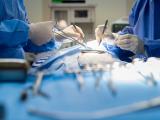Researchers in Germany yesterday reported finding more than 400 Escherichia coli isolates from livestock and food products that tested positive for the MCR-1 gene, which can make bacteria resistant to the powerful antibiotic colistin.
Writing in PLoS One, the researchers reported that screening detected MCR-1 in 402 of 505 (79.8%) colistin-resistant E coli isolates derived from a German monitoring program on antibiotic resistance in zoonotic agents.
The researchers said the study, which screened more than 10,000 E coli isolates gathered from German livestock and food from 2010 to 2015, is the first systematic look at the prevalence of MCR-1 in the country. The overall MCR-1 detection rate was 3.8%.
The MCR-1 gene was first reported in November 2015 by an international team of researchers who found it in a strain of E coli identified in pigs, raw pork meat, and a handful of hospitalized patients in China. Since then, the gene has been detected in livestock, food, environmental, and human isolates in at least 30 countries.
Colistin is considered a last-resort antibiotic for bacterial infections that are resistant to other drugs. While bacteria can also become resistant to colistin through chromosomal mechanisms, MCR-1–mediated resistance is more worrisome because of the potential for rapid dissemination.
The concern among public health officials is that the MCR-1 gene, which is located on a mobile piece of DNA called a plasmid and can spread quickly to other types of bacteria, will latch onto a highly drug-resistant bacteria and create a "superbug" that's nearly impossible to treat.
Highest prevalence in poultry
The authors of the study reported the MCR-1 gene was most prevalent in the poultry production and food chains, with 10.7% of turkey isolates and 5.6% of broiler isolates indicating the presence of the gene.
he presence of MCR-1 harboring E coli isolates was lower in veal calves (2.4%) and pigs (1.5%), and none were found in isolates from beef cattle or beef and dairy products. The authors noted that this finding was in contrast to China, where most MCR-1–positive E coli isolates were found in the pig production chain.
Overall, the authors said the prevalence of the MCR-1 gene in Germany is twice as high as in France and that colistin resistance in Germany is higher than the European average, which could be attributable to higher use of polymixin antibiotics (a class that includes colistin). But they urged more epidemiologic studies in other European countries in order to assess the German findings better.
See also:
Jul 25 PLoS One study

























